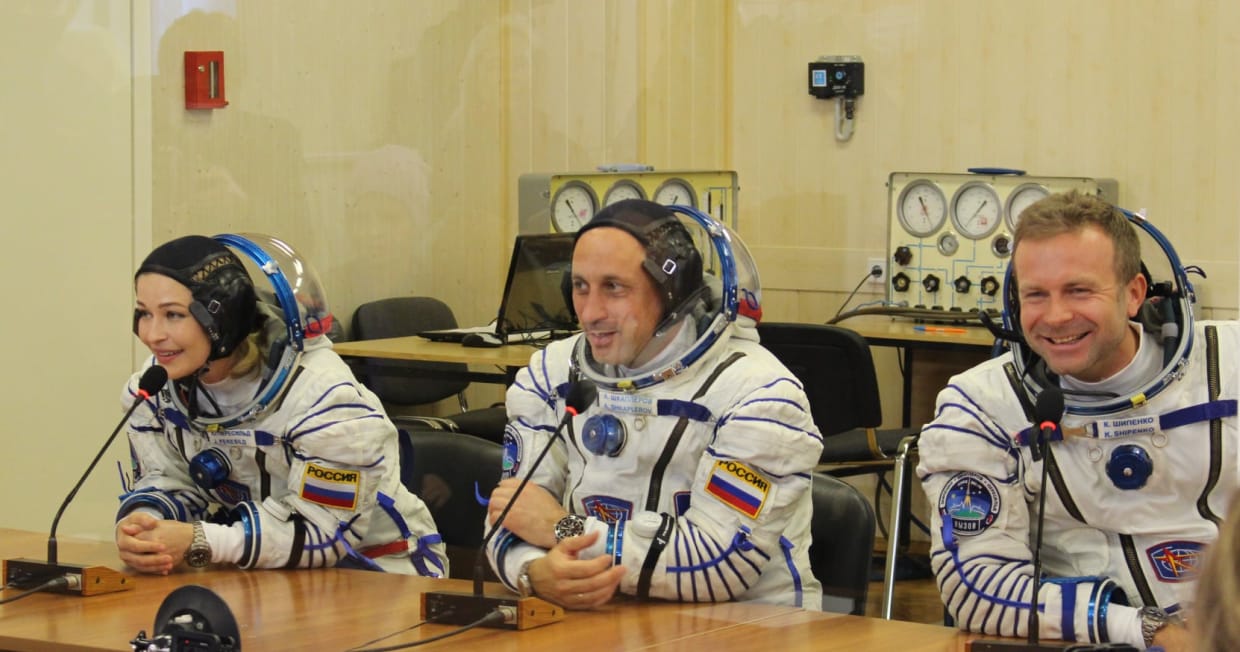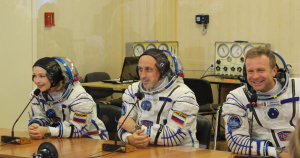
Russia sends actor, director to make first movie in space

A Russian actor and director blasted off Tuesday for a trip to the International Space Station (ISS) to make the first ever movie to be shot in space. But this joint project between state space corporation Roscosmos and state-owned TV station Channel One provoked controversy. While some applauded a ground-breaking moment in Russian movie-making, others were angered by the disruption to the work of the space program.
- The Soyuz MC-19 spacecraft carrying actor Yulia Peresild and director Klim Shipenko launched from the Baikonur cosmodrome. A third member of the crew, cosmonaut Anton Shkaplerov, has already made several visits to the ISS. The flight went as scheduled, apart from a 10-minute delay during docking. Roscosmos head Dmitry Rogozin joked the delay merely “added to the drama”. As Shkaplerov switched to manual control for the final approach, he was assisted by Peresild, Channel One head Konstantin Ernst later told reporters.
- Shipenko and Peresild are on the ISS to shoot sci-fi drama Challenge. In the movie, Peresild’s character, a heart surgeon, must perform an operation in space. The role of the patient will be taken by a real cosmonaut. Actor and director will spend 12 days in orbit and are due to return to Earth with about 35 minutes of footage.
- Challenge is billed as a joint project involving Roscosmos and Channel One with both Rogozin and Ernst listed as producers. Channel One’s PR team has been working hard: live coverage of the Soyuz MC-19’s launch attracted 13 million viewers.
- Roscosmos first announced plans to shoot a feature film on the ISS last year shortly after U.S. media reported Doug Liman’s plans to fly to the ISS with Tom Cruise. Liman reportedly had a contract with Axiom Space to fly on Space X’s Crew Dragon craft. Rumors that Cruise might film on the ISS first circulated back in May 2020.
- Roscosmos said funds for the filming would come from Channel One, Russia’s space program and its commercial arm, Glavkosmos. But that only accounts for part of the money: the creators of the film also requested 400 million rubles ($5.6 million) from the state-owned Cinema Fund (it’s not known how much they received) and total production costs are estimated at more than 850 million rubles.
- But that’s only half the story. The cost of a commercial flight on a Soyuz rocket is far more: it’s about $35 million (and that does not include the costs of a manned spacecraft). NASA typically pays an average of $55 million for a seat on one of Russia’s manned Soyuz flights, with the most expensive trips costing up to $90 million. So, the whole trip would have cost a private client at least $100 million.
- Some Russians are unhappy that a big chunk of state money has been spent without any obvious social benefit. Others criticized the project because it cost professional cosmonauts the chance to get to the ISS – a chance that might come just once in a career. At the same time, two of the current crew on the ISS, Russia’s Pyotr Dubrov and American Mark Vande Hei will have to remain in orbit for another six months to enable the film crew to return to Earth in the planned time frame. Inside Roscosmos there were also questions: Sergei Krikalev, the only cosmonaut among the directors of the state corporation, was given an ‘honorable demotion’ after criticism of the movie.
- A Facebook post by journalist Evgenia Albats highlighted the level of public interest. Albats’ post questioning whether Peresild’s flight was really the top news story of the day attracted more than 700 comments. Another Facebook post, this time by journalist Yekaterian Gordeyeva attracted 400 comments. Gordeyeva backed Peresild, but many of the comments questioned how her space flight would benefit ordinary Russians.
Why the world should care: This squabble over a world first in space involving a Russian actor and director reflects contemporary Russian society: those hit by a stagnating economy curse wasteful state spending while Kremlin propagandists struggle to silence dissent with tales of the country’s ‘latest triumph’. Ultimately, it’s ordinary people who suffer.




